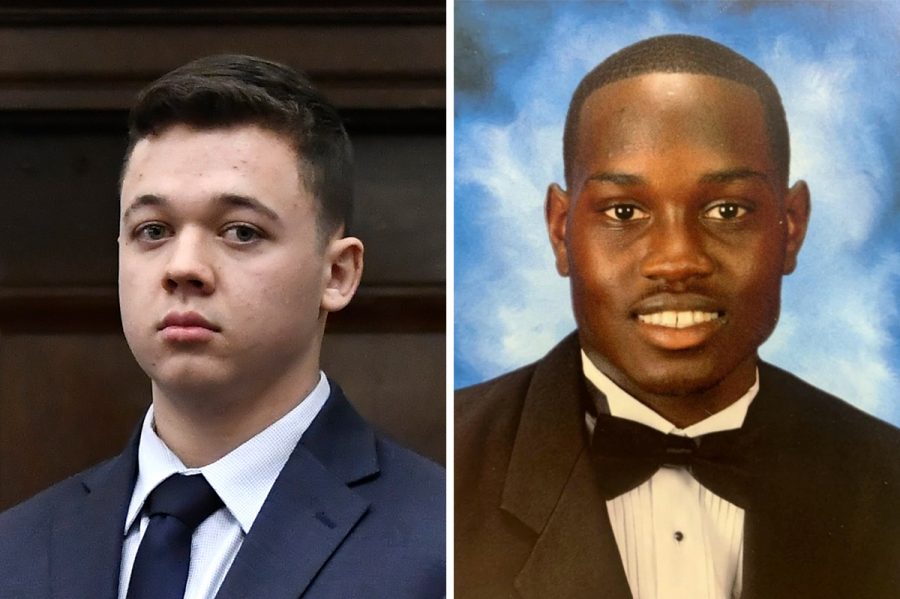Rittenhouse, Arbery Cases Resurface
National spotlight has been cast again onto the recent court cases of Kyle Rittenhouse in the Kenosha Unrest Shooting and Ahmaud Arbery’s death by Travis McMichael, Gregory McMicael, and William “Roddie” Bryan.
On Aug. 25, 2020, 17-year-old Kyle Rittenhouse fatally shot two men and injured a third during civil unrest and protests in Kenosha, Wisconsin after the police shooting of a black man, Jacob Blake. Rittenhouse came to Kenosha from his hometown in Illinois to join an armed group of men who claimed that they were there to protect businesses and render medical aid.
After fatally shooting Anthony Huberand and Josh Rosenbaum and injuring Gaige Grosskreutz with an AR-15 rifle he borrowed from a friend, Rittenhouse was charged with one count of first-degree reckless homicide, one charge of first-degree intentional homicide, two counts of first-degree recklessly endangering safety, and one count of attempted first-degree intentional homicide. Rittenhouse pleaded not guilty, claiming that he shot all three men in self defense.
On Friday, Nov. 19, Rittenhouse was found not guilty on all charges after four days of deliberations by the jury. Rittenhouse’s trial had been closely watched by much of the country, and his acquittal immediately sparked controversy.
Many Conservatives applauded the jury for their decision, parading Rittenhouse as a hero and believing that he was justified in his actions.
Conversely, Democrats were outraged by the verdict and have condemned Rittenhouse as a dangerous vigilante, comparing it to cases of police violence where white perpetrators are given leeway that people of color would never have and lauding it as an example of white supremacy within the justice system.
As the fallout of the Kyle Rittenhouse case continued, so too did the case against Gregory and Travis McMichael and their neighbor William Bryan for the racially motivated killing of Ahmaud Arbery.
Arbery was shot and killed while running in Brunswick, Georgia on Feb. 23, 2020 by Gregory and Travis McMichael after they pursued him through their neighborhood in their truck. They were joined eventually by Bryan who filmed the killing from his own truck. The McMichaels claimed that they were attempting to make a citizen’s arrest on Arbery, who allegedly matched the description of the perpetrator in a series of local break-ins which had never been reported to the police.
The case did not gain national traction until a video of the shooting surfaced and spread on social media on May 5, 2020. Both McMichaels and Bryan were finally arrested for the shooting three days later on May 8.
Both McMichaels were charged with one count of using, carrying, brandishing – and in Travis’s case, discharging- a firearm during and in relation to a crime of violence. All three of the defendants were also charged with one count of interference with rights and one count of attempted kidnapping alongside charges of malice murder, felony murder, aggravated assault, false imprisonment, and criminal attempt to commit a felony. The defendants pleaded not guilty to all charges.
The trial quickly became a major focus of civil rights activists. Not only was this case racial in nature, but there was also just one black juror in the case, which garnered criticism from many. Many activists and members of the NAACP came to speak to citizens waiting outside the courthouse. Reverend Jesse Jackson, a prominent civil rights activist and politician, even came in support of Arbery’s parents. Though defendants argued that he be barred from the courtroom, the judge denied their request.
After 8 days of testimony and two days of deliberation, the jury made their verdict on Wednesday, Nov. 24. Travis McMichael was found guilty on all charges, and his father was found guilty on all charges except for malice murder. Bryan was found guilty on three counts of felony murder, one count of aggravated assault, false imprisonment and criminal attempt to commit a felony.
Despite the defendants’ plans to appeal to a higher court, the jury’s verdict was joyfully received by many. People cited it as a rare moment of justice and applauded the jury for their decision on this case.



